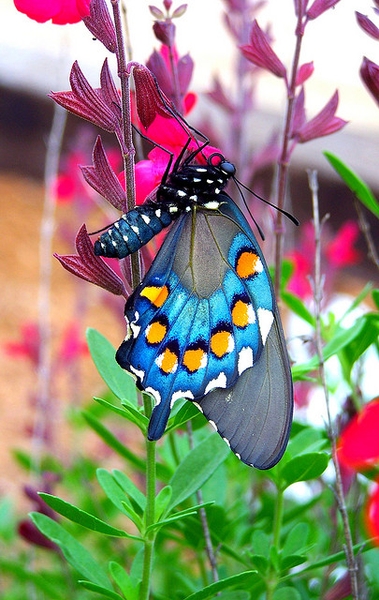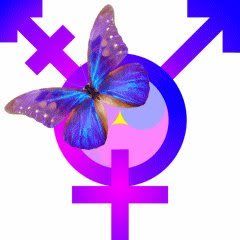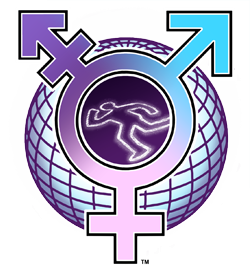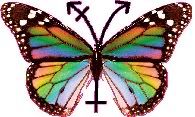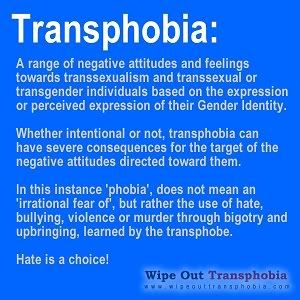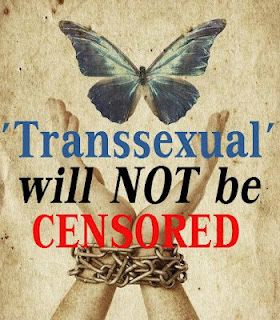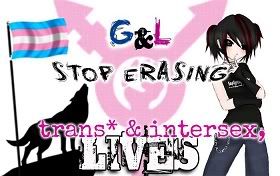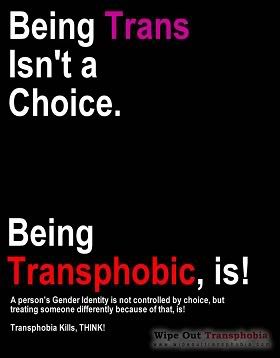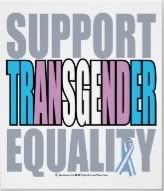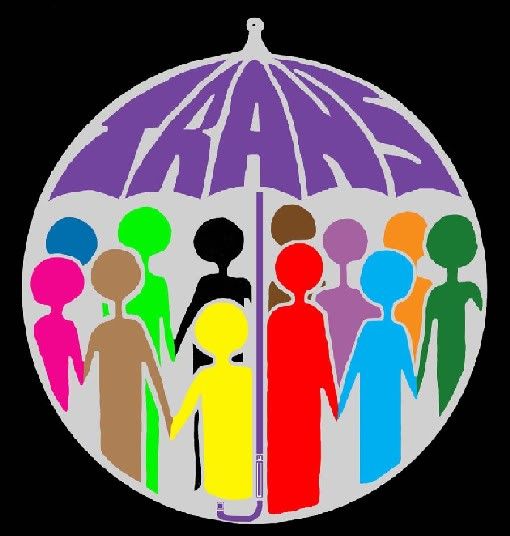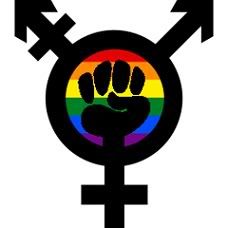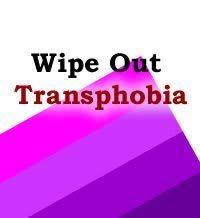TranCIStioning
tran·si·tion
/tranˈziSHən/
Noun
The process or a period of changing from one state or condition to another.Verb
Undergo or cause to undergo a process or period of transition: “we had to transition to a new set of products”Synonyms
passage — change — crossing — transit
I have neglected this blog for a long time (geez! almost a year!) not because I don’t think it’s important, but because I have a lot going on in my life and writing is not easy for me. Actually, it’s because I am transitioning.
I am not trying to minimize the experiences of trans* people nor trying to equate my transitioning to gender transition, but there are some similarities, which I hope I can adequately articulate and not get my trans* friends pissed off at me (screw the RatFaux-Feminists.) I believe that many people are in constant transition, continually evolving, developing new relationships, learning from those people & those relationships and from other life experiences. I’m not sure that all people are continually transitioning, as some seem to stagnate and not appear to learn anything, nor do they seem to grow or improve as human beings (e.g., NOMmers, Westboro Baptist Church, and other fundamentalist christians who cherry-pick the bible to justify their ignorance and hate, etc.) I like to think that I am continually learning, growing, and becoming a more complete (not necessarily better 😉 ) person. Perhaps that is delusional thinking, but I am going to indulge myself anyway. After all, this is my blog and I am Queen. 😀
There are all kinds of life transitions and we celebrate many of them: Births, birthdays, onset of puberty, questioning and/or realizing that one does not adhere to society’s cisgender and/or heterosexual norm (I did NOT say “normal”— “norm” is a statistical term), coming out (or deciding not to) as transgender, lesbian, gay, bisexual, pansexual, etc., obtaining a driver’s license, a new job, voting for the first time, buying a car, starting high school/college/graduate school, graduations, starting/ending relationships, engagements, marriages, civil unions, anniversaries, divorces (yes, there are people who throw divorce parties), buying a house, relocating, children moving out of the house, onset of perimenopause and menopause, illnesses, changes (and possible limitations) related to aging… and, finally death—our own and those of family and friends. Some of these transitions are marked with single events, while some take place over a period of time. In talking to my trans* friends, I would conclude that coming out as transgender, real-life experience (RLE) (i.e., appearing in public dressed, groomed and presenting as one’s true gender,) beginning hormone therapy, and sex reassignment surgery (SRS) are among the major transition points in the life of a transgender person’s gender transition.
Before I try to describe my current transitioning (i.e., my rationalization for neglecting this blog, lol,) I am going to describe some events in my own life that may explain why I feel comfortable with trans women, and perhaps why I feel less comfortable with trans men (see my blog entry “A Penis? Uh… NO, thanks… No Penis for Me!” for my diatribe against trans men attending women’s colleges.) First, another definition:
trans·gen·der
/tranzˈjendər/
AdjectiveDefinition: A transgender person is someone whose personal idea of gender does not correlate with his or her assigned gender role. It does not exclusively refer to transsexual persons, i.e. those who are transitioning or have transitioned from one gender to another; all transsexual persons are transgender, but not all transgender persons are transsexual. A transgender person is anyone who fully accepts a gender identity—androgynous, hermaphroditic, intersex, transsexual, third gender, bigender, or otherwise gender non-conformist—does not match his or her assigned gender [emphasis added.]
Common Misspellings: transgendered
At the risk of completely alienating all of my tran* friends, I am going to say it:
~ ducks, runs & hides, wondering how to get into Witness Protection… ~
According to the broad definition of “transgender” above, I contend that I would, in fact, be considered transgender.
Now, TAKE A DEEP BREATH! Allow me to explain. Again, I am not trying to equate my experience with those of my transgender sisters who are transgender in the conventional sense, i.e., born with a hormonal system and/or body parts (i.e., sex) that do/does not match their gender. I am a cisgender woman with all of the female parts (some people would argue vis-à-vis the presence of breasts, but hey, I’m 54 years old and… well… what goes up, must come down 😉 ) there has never been any question about this. But I received some confusing childhood gender-related messages and I have never been one to take on any role that someone else has decided and assigned to me.
I would say that a person begins developing their identity as a person with their name and assigned gender. What are the questions we ask when someone has a baby? “Is it a girl or a boy?” and “What is her/his name?” are the first 2 that come to my mind. And I would imagine that their name and presumed gender are the first 2 things a baby learns about themself from most parents (I don’t remember laying the gender thing on my daughter until later when I told her to be careful not to fall and crack her head open because her brains might fall out and she would turn into a boy….)
Let’s start with my name. I have a boy’s name. Okay, “Jody” is more common as a girl’s name now, but it is almost always spelled with an “i” or “ie” (or “ee”) instead of a “y”, and it was certainly uncommon back in the dark ages when I was born. When I was 3 or 4, Santa called me “Judy.” Yes, this could have been a simple & understandable error, but it’s happened my whole life whenever someone screwed up my name (which happened frequently) and already knew I was female. On the other hand, substitute teachers would take attendance, asking, “Jody? Where is he?” It was never, ever, ever “she.” And everyone, when learning that I am, in fact, female and my name is, in fact, spelled with a “y” would inform me that I spell my name “the boy’s way.” Dammit! I was a girl! And dammit! I didn’t pick the stupid name or decide how to spell it!
Until the 4th grade, my mother made me keep my hair short despite the fact that I wanted long hair. I don’t know whether my desire for long hair had anything to do with expressing femininity, I just wanted long hair, dammit! I do remember at least once or twice someone mistaking me for a boy in a very public way when I was prepubescent. It was humiliating—obviously, as I still remember it. In any case, despite having very thin hair due to a thyroid problem, at 54 years old my hair is almost down to my waist and if it would grow any longer, it would be even longer.
I remember how happy I was when my mother allowed me to pick out my own clothes—even those I would receive as Christmas and birthday gifts. I really hated some of the clothes she bought for me before that. I recall 1 specific incident about a teacher thinking that my raincoat belonged to a boy and this was expressed in a public and very humiliating manner. I’ve never gone for a lot of pink, ruffly lacy crap.
When I started elementary school, girls were not permitted to wear pants to school. Yes, this is true. When the policy changed and I told my mother I wanted to wear pants, at first she didn’t believe me (and I was a painfully honest child, so that created other issues) and then she reluctantly allowed me to wear “nice” pants, but only twice/week. I was what then was called a “tomboy” and didn’t like wearing dresses because I was very active and dresses are not conducive to, for example, doing cartwheels. I didn’t play with dolls or other “girl” toys (I never had a Barbie) and preferred to play outside, riding my bike, climbing trees, digging in the dirt or exploring the woods.
I clearly remember being at a community swimming pool with my entire family (I must have been about 11) and my parents very loudly discussing the hair on my legs and whether it was time for me to start shaving my legs. I was already extremely self-conscious (I think my mother had already started telling my sister that she was “the pretty one” and I was “the smart one”; you can imagine the messages we got from that!) and this public humiliation made it worse. And, no, my mother did not allow me to start shaving my legs for a couple of years after that even though kids made fun of my hairy legs.
Despite my perception that I had a body resembling that of a young boy, I started dating at 12½ and was “boy-crazy” for years. It wasn’t about sex: I didn’t have sex until almost 19. I came from a family that did not express love or affection either verbally or physically in any meaningful way, so that probably accounts for most of my need for romantic relationships (I couldn’t stand having anyone else touch me), but maybe I was also trying to prove my femininity… to the world or to myself. I don’t know. (Having recently been told by a rather, shall I say, “voluptuous” woman that I have the body of an adolescent boy, I LMAO and took it as a compliment! At my age that is definitely a good thing! Poor old witch didn’t mean it as a compliment though.)
In school I always did well in math & science which I was not “supposed” to do because I was a girl. Can you believe that BS? But I also did well in foreign languages and everything else. The one clear identity I always had was that of student (and employee) with a role to achieve and excel. And for the most part, I did. But I didn’t have a clear sense about what it meant to be a woman. When someone walked into a room with their baby, I was more likely to leave the room than I was to do the baby talk thing. I refused to let anyone push me into traditional roles but encountered pressures and stereotypes (especially when working in a male-dominated field) on an ongoing basis. Even when I changed fields and entered the female-dominated field of professional social work, I wasn’t the stereotypical social worker because I’m not the warm and pleasant touchy-feely outgoing type person that everyone likes; in fact, I’m quite introverted and don’t give a rat’s ass whether people like me or not.
When the biological clock kicked in and I gave birth to my daughter at 36, I assumed the role of mother in addition to employee. Naturally I wanted to excel. I read baby books, went to La Leche League meetings, read more books, talked to friends, read books, decided to ignore conflicting information I received from people I didn’t trust & to trust professionals and my own instincts, & read more books. I used cloth diapers, breastfed and made my own baby food. I did my best as a single parent to give my child the love, support & sense of identity I never got while growing up.
When I became disabled & no longer able to work I was absolutely devastated. Work had always been at the core of my identity, and until my daughter was born, my entire identity essentially revolved around work. When my child ended up in foster care (through no fault of mine—a very loonnngggg and unpleasant story) and having had my only remaining real identity in essence ripped from me, I was lost. I had been forced into several major transitions in my life but was so busy grieving the losses that I did not recognize the opportunities that these overlapping transitions precipitated by these horrendous life-altering events had provided for me.
I became an advocate and activist for LGBT people and others on Facebook. I learned about issues and hate groups, and helped get some hate pages/groups shut down on Facebook. I met 100s of new people, made new friends and revived friendships that had been inactive for decades. I learned the word “pomosexual” and have appropriated it to describe my sexual orientation. I learned the word “cisgender” and learned that I am one. I learned a lot about gender and am starting to wrap my head around the concept of non-binary gender. I learned (mostly by reading) a lot about transgender issues and developed friendships with several transgender women who I consider my sisters. I have learned about myself and learned to let the little things go and deal with the big things more calmly (which came with a price.) I know more about the foster care system in the State of Florida than anyone would ever want to know (it’s even worse than people think it is.) I learned that even people smart enough to graduate from law school can be too stupid to learn to understand that bipolar disorder is a medical—biological—disorder of the brain. I learned that you can’t fix stupid and no matter how good a parent you are and how you raise them, some kids just don’t turn out the way one would expect them to.
During and prior to that period of transitioning, I was subject to physical, psychological and emotional trauma and there were times that my life was literally in danger. I developed Posttraumatic Stress Disorder (PTSD) and continue to meet the full criteria for the disorder, although I am less frequently exposed to the source of trauma and lethality has been diminished by making some changes in my life. One of the things I had to do to survive during that time was to numb myself emotionally and I continue to experience “feeling[s] of detachment or estrangement from others” and “restricted range of affect (e.g., unable to have loving feelings.” Therefore, a primary goal in my current period of transition is to take back my life: i.e., to re-establish a stable sense of personal identity, become more functional physically & cognitively, work towards experiencing a wider range of emotions, feel productive—giving something back to the world, and find more purpose in my life. So, that’s what I’ve been doing. I think writing this has served some of these purposes. Why the hell you read it is beyond me. 🙂
Posted on June 23, 2013, in transgender and tagged cisgender, gender, Gender identity, NOM, Sex reassignment surgery, trans man, Trans woman, transgender, transgenderED, transition, transitioning, Transsexualism, Westboro Baptist Church. Bookmark the permalink. Comments Off on TranCIStioning.

